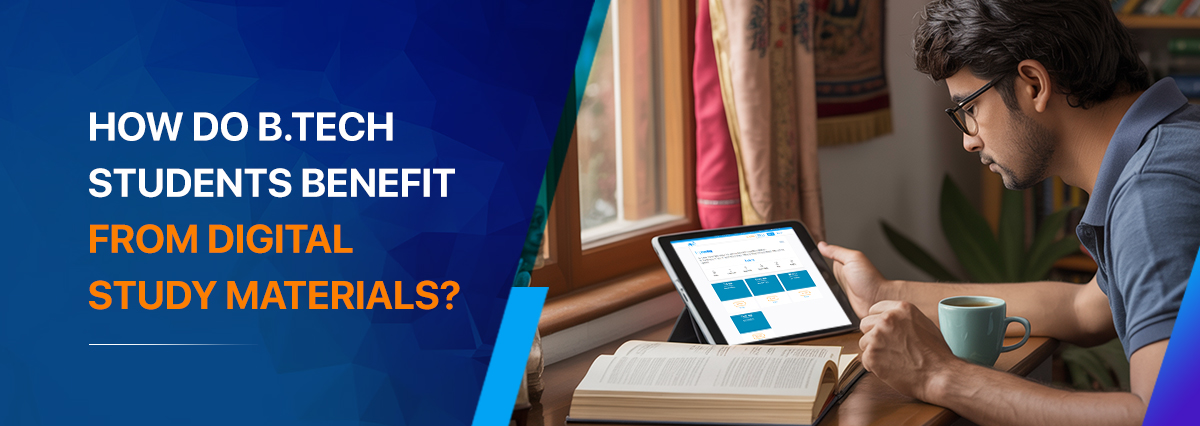How Do B.Tech Students Benefit from Digital Study Materials?
1. Study anywhere, anytime—real flexibility
One of the biggest advantages of digital learning is accessibility. Students no longer need to carry bulky textbooks or wait for library slots. Engineering study material—such as notes, e-books, recorded lectures, or quizzes—are available on mobile phones, tablets, or laptops.
2. Personalised and adaptive learning paths
Not every student learns the same way. Some prefer detailed explanations, while others grasp concepts better through visuals or hands-on examples. Digital platforms allow students to learn at their own pace and in the format that suits them best.
At MTutor, students can follow a personalised course path based on their academic progress and performance. If a student finds certain engineering subjects challenging, the platform can recommend targeted lessons, quizzes, or doubt-clearing sessions. This ensures that learning stays relevant and focused.
Also, students can raise doubts anytime and receive expert support. With MTutor’s 750+ expert faculty members, instant academic assistance remains readily available.

3. Time-efficient and well-organised content
Time management is critical for B.Tech students managing lectures, labs, projects, and assignments. Digital study materials help students use their time efficiently. Instead of going through long textbook chapters, students can focus on essential concepts through short video lessons, topic summaries, and well-structured notes.
Digital learning doesn’t replace traditional study methods—it enhances them by cutting out unnecessary delays and distractions


